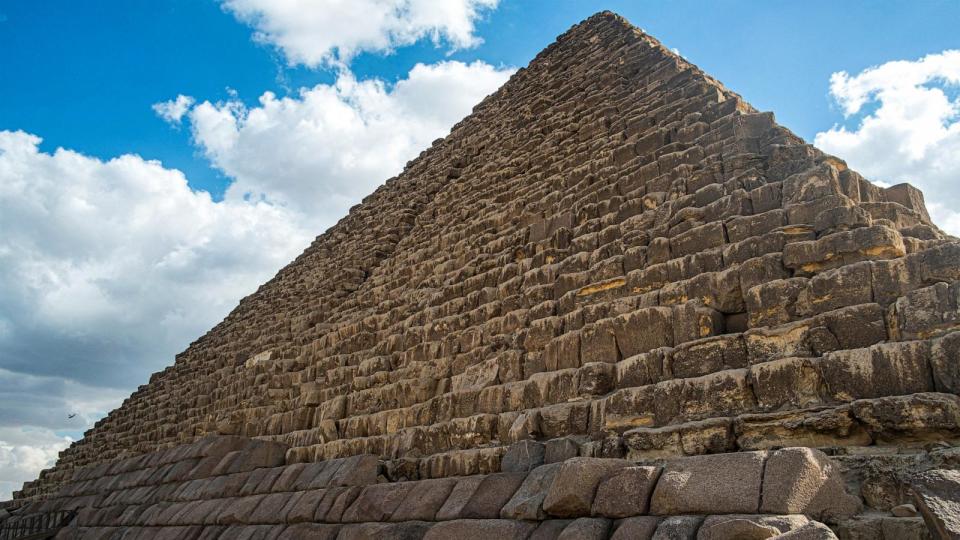Controversial Egypt pyramid renovation likely to be rolled back

A controversial plan to cover one of Egypt’s Giza Pyramids with granite cladding will likely not be possible given rock nature and international archaeological restoration law, according to a prominent archaeologist following massive public backlash against the plan
The announcement of the project last week has sparked criticism and ridicule among experts and social media users, with many expressing concerns over the fate of a wonder of the ancient world, dismissing the plan as “tiling the pyramid.”
Egypt’s antiquities ministry said the restoration aims to reinstall hundreds of granite blocks that used to form the outer casing of the Pyramid of Menkaure, the smallest of the three main pyramids of Giza.
The 4,500-year-old structure was originally covered in 16 courses of granite blocks but only seven remain today.
Mostafa Waziry, the head of Egypt’s Supreme Council of Antiquities, dubbed it the “project of the century” as he made the announcement, but some archaeologists have taken issue with the plan and say it would be unworkable.
“The blocks around the pyramid are all unpolished and incomplete. They are totally unsuitable to be reconstructed on the surface of the pyramid,” Egyptologist and former antiquities minister Zahy Hawas, who chairs an ad hoc assessment committee formed to decide on the fate of the project, told ABC News.

Even if the blocks were fit, Hawas says, under international principles of archaeological restoration, the style of a monument should be kept unchanged.
The pyramid was constructed as a monumental tomb of the fourth dynasty Pharaoh Menkaure around 2510 BC, to an original height of 65.5 meters (215 feet). It now stands at 61 m (200 feet) tall.
Experts believe the unfinished nature of the granite cladding indicates that King Menkaure died before the structure was finished and his son completed the stonework.
The new project will most likely be confined to topographic mapping of the pyramid and documentation of granite blocks found, Hawas said, adding that officials “rushed” into how they presented the plan to the public.
Digging in the site, however, will continue with the aim of unearthing more layers of the bedrock beneath the pyramid, he said. The team is hopeful they could uncover other important findings in the process.
“No one will touch the Pyramid. The Pyramids are sacred,” he said, adding that the committee’s official results will be announced within days.
Some critics mistakenly thought rows of granite blocks encasing the lower part of Menkaure seen in a recent video showing workers digging up around the base of the pyramid were newly reconstructed, but Egyptologists said they are part of the original structure and have been there for centuries.
The project, led by an Egyptian-Japanese archaeological mission, is slated to last three years, Waziri of the antiquities council said. Studying fallen blocks, including through photogrammetry and laser scanning, will take at least one year.
Heritage conservation in Egypt has become a source of debate following several controversial projects that had resulted in razing historic areas and flawed renovation of hundreds-year-old mosques.
“It’s too early now to discuss the reinstallation. Study results will be put forward to the international committee before any next steps are taken,” Waziry said.
Controversial Egypt pyramid renovation likely to be rolled back originally appeared on abcnews.go.com

